Betta fish, or Siamese fighting fish, are one of the most popular aquatic pets kept worldwide. While they can be a great addition to any home aquarium, many people wonder: do betta fish pee?
The answer is yes! In this article, we’ll take a closer look at how and why betta fish produce urine. In order to properly care for these beautiful creatures in our own homes, it’s important that we understand their needs and behaviors. We owe them the best possible quality of life – and understanding their urinary habits is part of that responsibility.
This article will provide you with key facts about betta fish peeing so that you can give your pet the love and attention it deserves!
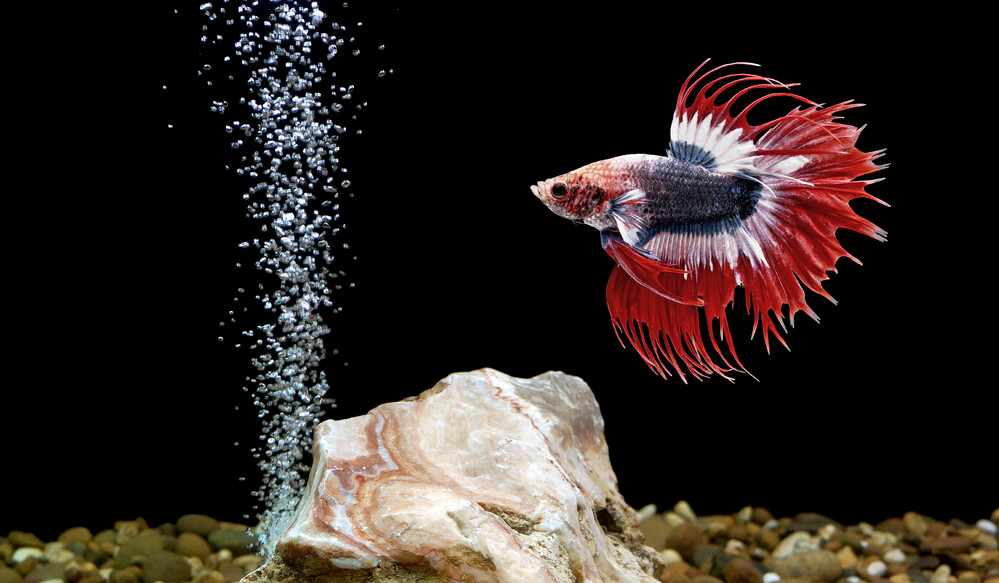
What Is Betta Fish Urine?
Betta fish urine is a waste product produced by the body that results from filtering out toxins and excess minerals. Betta fish excrete this liquid through their gills, just like any other fish species does.
Urine in betta fish contains ammonia and nitrates, which can be dangerous to them if it accumulates too much. Therefore, it’s important for betta owners to make sure they are changing their water regularly or using an aquarium filter to help keep these levels low.
The color of your betta’s pee will vary depending on how healthy they are and what type of diet they’re eating. If you notice that their pee is cloudy or has a strong smell, then it’s likely an indication of poor health and should be addressed immediately with proper medical care. On the other hand, clear-colored urine means your betta is doing well and doesn’t need additional attention at the moment.
It is normal for bettas to produce some amount of urine each day as long as its not excessive or accompanied by symptoms such as lethargy or changes in behavior. Regularly cleaning out your tank and keeping up with maintenance will ensure that your pet’s environment stays clean and safe for them to live comfortably in.
Taking these steps will provide peace of mind knowing that your betta is living happily and healthy!
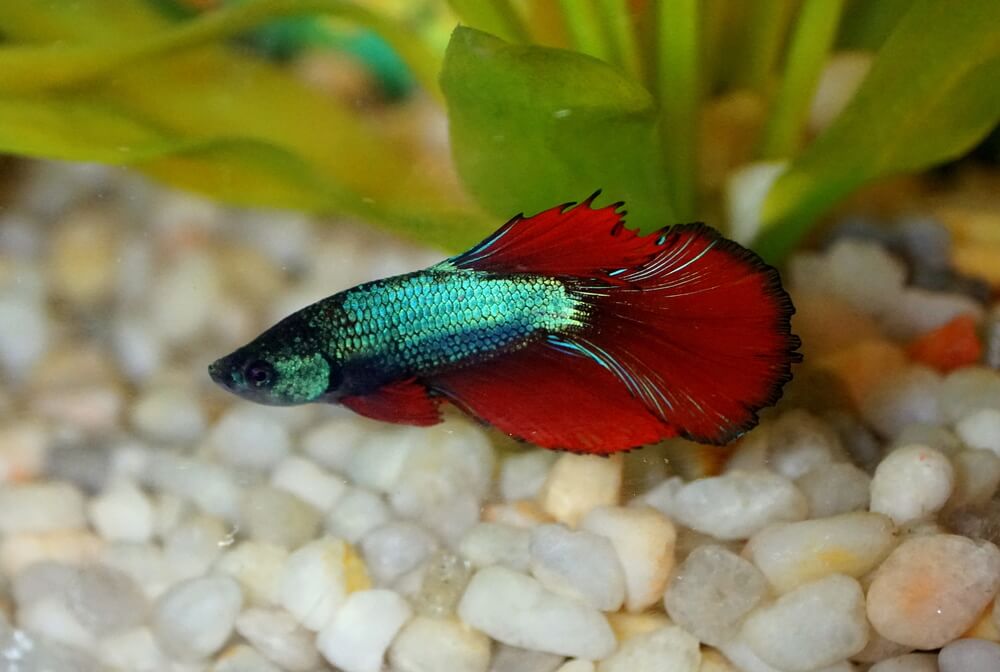
How Do Betta Fish Pee?
From the moment they wake up in the morning to when they finally rest their beautiful little heads on a bed of soft and cushiony substrate, these colorful creatures seem to continuously be getting rid of waste.
So, how do betta fish pee?
Well, here’s what you need to know:
- Betta fish excrete ammonia through their gills.
- This is why it is important to provide your betta with clean water often – not only does this help remove toxins from the tank but also helps keep your betta healthy and happy.
- Ammonia levels should never exceed 0.2ppm for a safe environment for your beloved fish friend.
When it comes to keeping our aquatic friends free from harm, us humans have got one thing straight – making sure they stay away from toxic environments like those caused by high concentrations of ammonia.
And while we can easily monitor and adjust ammonium levels in tanks using special devices or products, all we really need to focus on is providing them with clean water regularly which will ensure that our finned pals are able to live long and fulfilling lives within their piscine paradise!
What Is The Role Of Betta Fish Urine?
Betta fish urine plays an important role in the overall health of these fascinating creatures. This ammonia-based substance is produced by their bodies as a means of eliminating excess waste, and it helps them to maintain homeostasis within their aquatic environment.
The presence of this urine is especially helpful for betta fish that are kept in tanks with limited water changes or filtration systems – without it, any build up of toxins can result in sickness or death.
The amount of urine produced by a betta fish varies depending on its diet and other factors such as temperature, pH levels, and stress – all of which will affect how much they produce. In general, though, it’s not uncommon for healthy adult males to excrete between 0.25ml and 2ml per day.
A larger tank size may also be beneficial since there would likely be more space for the betta to spread out its waste products into the water column rather than having them accumulate in one area.
It’s clear then that urine production serves an essential purpose when it comes to maintaining optimal conditions for your pet betta fish. Therefore, if you plan on keeping these colorful finned friends at home make sure you provide ample space along with regular water changes so they have access to clean living quarters free from harmful toxins like ammonia!
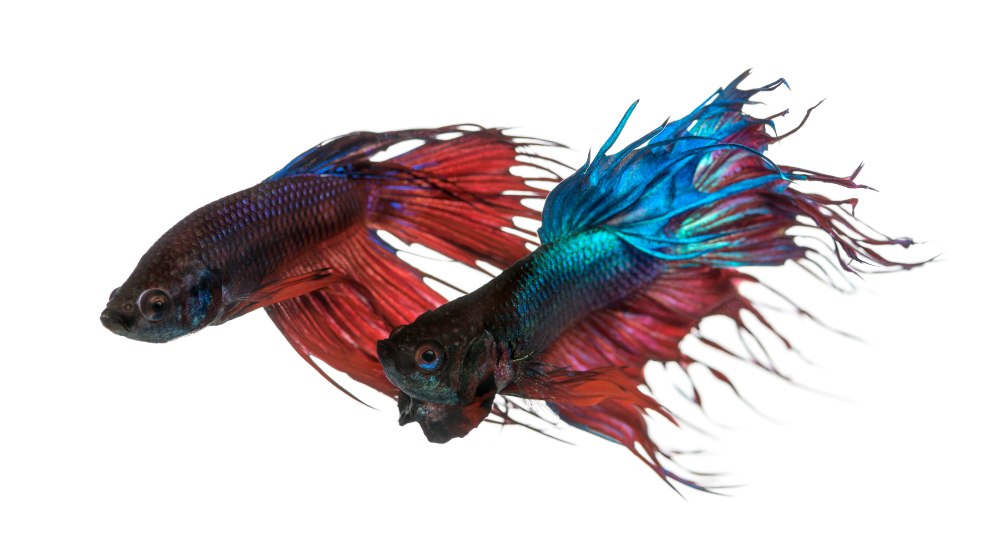
Why Do Betta Fish Pee?
Betta fish have a unique anatomy that includes a urinary system, so it’s natural to wonder why they pee.
Their urinary system functions similarly to ours, helping to transport waste and toxins out of their bodies.
They produce a concentrated form of urine, which is why they often pee in small amounts.
In order to understand why they pee, we need to look at how their urinary system works.
Betta Fish Anatomy
Betta fish have a unique anatomy that allows them to live in their natural environment. Their kidneys and urinary systems are adapted for living in fresh water, which is why they pee! Betta fish have two sets of nephrons within the kidney, both of which filter out waste products from the blood. These then move through the bladder and into the cloaca where it’s released as urine.
The cloaca also serves to release solid waste, eggs and sperm during spawning season. The size of this organ system varies between male and female bettas; males typically have larger urogenital organs than females due to their higher metabolism rate. This helps them process more food faster so they can stay active longer.
Additionally, betta fish possess an internal filter called a labyrinth organ which enables them to take in oxygen directly from air instead of relying on gills like other aquatic creatures do. All these features combined make betta fish well-adapted for life in freshwater environments with plenty of room to explore and play – just don’t forget about cleaning up after your pet when needed!
So whether you’re keeping one or many, make sure you provide proper care for your finned friends by providing clean water, good nutrition, and ample space for swimming around.
Urinary System Function
Fortunately, betta fish have a urinary system that helps keep their environment clean and safe. This system works by filtering out waste products from the blood before they can cause harm to other organisms in the water. It then moves through the bladder and is released as urine via the cloaca, which also serves to release solid waste, eggs and sperm during spawning season.
With this organ system in place, bettas are able to live happily and healthily in freshwater environments with plenty of space for swimming about!
The size of the urogenital organs does differ between male and female bettas; males typically have larger systems due to having higher metabolic rates than females. This enables them to process food more quickly so they stay active longer – great news for all those curious little swimmers among us!
Furthermore, these creatures possess an internal filter called a labyrinth organ which allows them to breathe oxygen directly from air instead of relying on gills like many other aquatic animals do.
All these features combined make living with your finned friends easy – just remember not to forget about regular tank maintenance when needed!
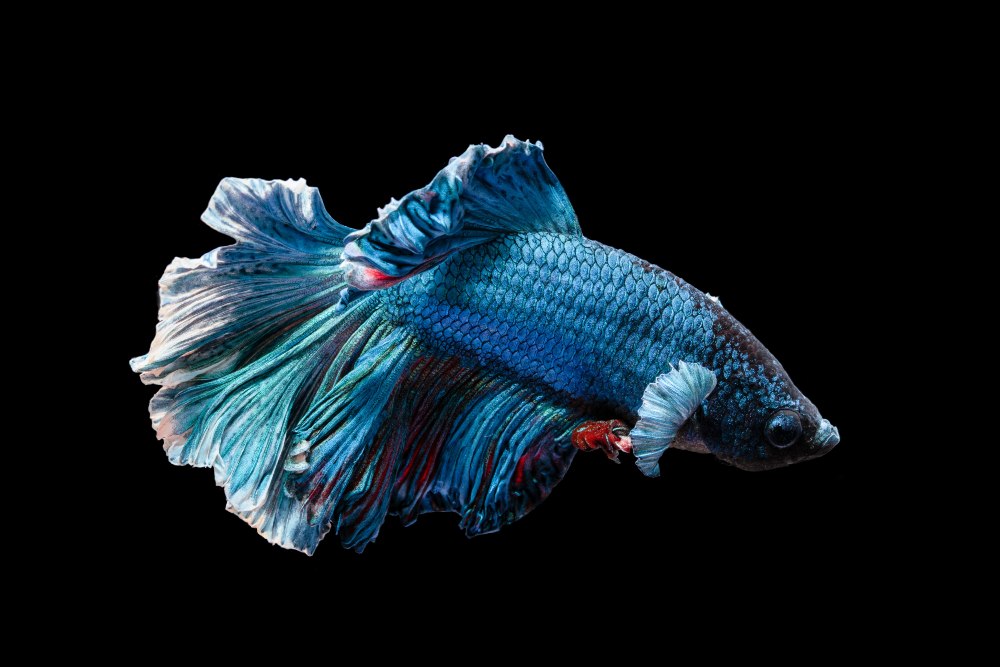
How Can You Tell If A Betta Fish Is Peeing?
Have you ever seen your Betta fish pee? Have you wondered how it goes about doing so and what signs to look out for? Knowing the answers to these questions can help ensure that your betta fish is healthy and happy.
Firstly, there are several ways in which you can tell if your Betta fish is peeing. Here’s a quick list of four common indicators:
- A change in water clarity or color – Urine will cause the water to become cloudy or discolored.
- An increase in frequency of water changes– If your Betta Fish is urinating frequently, then more frequent water changes may be necessary to keep the tank clean and safe for them.
- Increased ammonia levels – Ammonia is produced as a waste product from urine. High concentrations of ammonia buildup quickly when bettas start to urinate regularly.
- Foul odor coming from the tank – This could also indicate high levels of ammonia due to regular urination by your betta fish.
In addition, observing their behavior can give further clues into whether they’re excreting bodily fluids like urine. Look out for signs such as increased activity, swimming around more than usual, hiding away or avoiding food – all possible indications that something isn’t quite right with its environment or health!
The key is recognizing these behavioral patterns early on and taking action before things get worse. Understanding how to spot signs of regular urination means you’ll be better able to provide an optimal living space for your betta fish, ensuring that it stays healthy and strong for years to come!
How To Care For A Betta Fish To Reduce Peeing
Once you’ve determined if your betta fish is peeing, it’s important to take care of them properly in order to reduce the amount that they do.
Although some level of peeing is natural for a betta fish, there are certain steps you can take to keep it from becoming excessive.
Firstly, make sure your betta has an appropriate-sized tank with plenty of space and clean water.
Their tanks should be at least 5 gallons, but larger sizes provide more space and better water quality.
It’s also essential to maintain regular water changes by replacing 20% of their existing water each week.
This helps ensure that ammonia levels don’t get too high and that the pH balance remains stable.
Finally, feed your betta appropriately on a daily basis so that they don’t overeat or eat foods that aren’t good for them.
A healthy diet should contain pellets made specifically for bettas as well as frozen or live food such as bloodworms, brine shrimp, daphnia, and tubifex worms.
Also avoid overfeeding; one pellet per inch (2 cm) of body length is usually enough for most adult fish.
With these simple steps, you can help keep your betta fish happy and healthy while reducing unnecessary peeing.
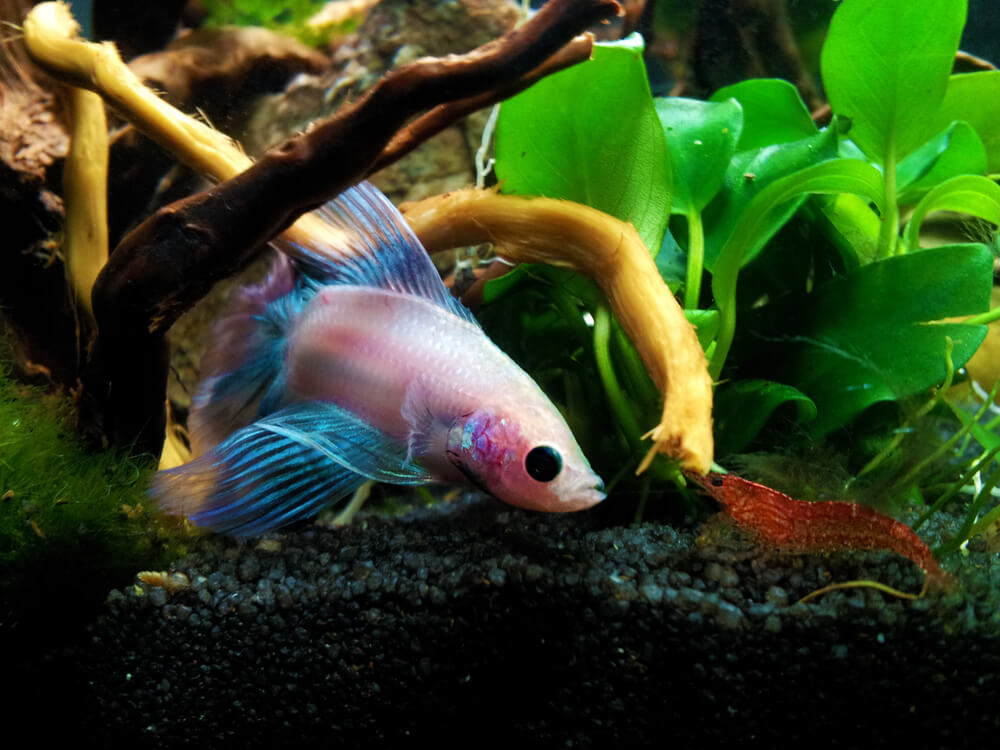
Are There Any Health Concerns Related To Betta Fish Peeing?
The question of whether betta fish pee has been long debated, and the answer is a resounding yes! Betta fish do in fact pee – but it’s nothing like what we humans experience. In terms of volume, their urination output is minuscule compared to ours, with only tiny droplets being released at a time. But that doesn’t mean there aren’t any health concerns associated with this bodily function; far from it!
When betta fish pee, they are actually releasing ammonia into their environment. Although these levels may not be harmful for small numbers of betta fish kept in well-maintained tanks or ponds, larger populations can cause an increase in the water’s toxicity levels.
Too much ammonia can lead to bacterial infections, fungal growth, and even death among your prized pet fishes. The presence of ammonia also increases acidity levels in the tank which makes it harder for other organisms living inside to survive as well.
Therefore, it is important to keep an eye on the amount of ammonia present in the water when keeping multiple betta fish together and make sure you have proper filtration systems installed so as to reduce its concentration levels whenever necessary. Regularly changing out some portion of the tank water helps too. Proper maintenance will ensure that your beloved finned friends stay healthy and safe!
What Should You Do If Your Betta Fish Is Peeing Too Much?
If your betta fish is peeing too much, it could indicate a number of potential problems.
Firstly, the water in their tank may be dirty or not changed often enough. It’s important to make sure that you’re cleaning and changing their tank regularly with fresh, dechlorinated water.
Additionally, if the pH value of the tank is off balance then this can cause excessive urination as well. Test kits are available that allow you to measure the exact levels of your tank so you can ensure they remain within an acceptable range for your betta fish.
Another reason why your betta might be peeing excessively is due to stress or trauma caused by abrupt changes to its environment like lighting, temperature or other conditions. If any of these factors have been recently altered then it may take some time for them to get used to the new setup before they stop over-urinating.
You can try adding plants, hiding spots or decorations into their tanks to help provide comfort and security while they acclimate themselves back into their natural habitat.
Lastly, if none of these solutions seem to work then it’s possible that there’s something medically wrong with your betta fish such as a urinary tract infection (UTI). In cases like this, it would be best to seek veterinary advice from a qualified professional who will be able to diagnose and treat any underlying health issues.
Providing your pet with quality care should prevent any further complications from arising and ultimately resolve their excessive urination problem quickly and safely.
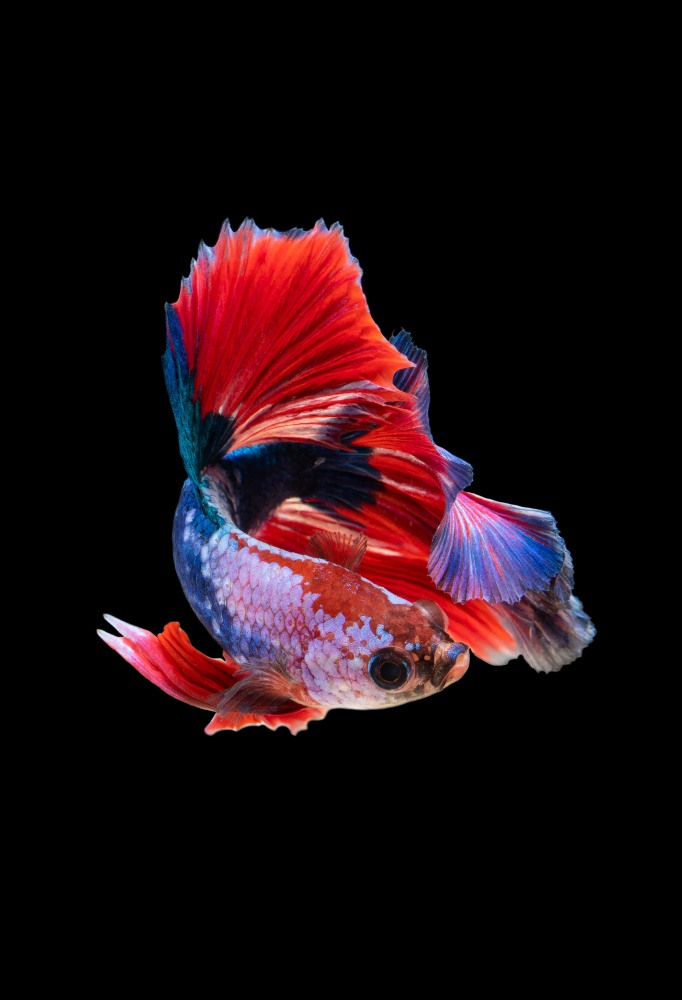
Conclusion
It’s natural for a betta fish to pee and there are certain health-related concerns that come with it.
It’s important to understand the role of their urine, how to tell if they’re peeing too much, and what you can do about it.
With proper care and attention, your betta fish will be able to enjoy a healthy life free from any unwanted urinary issues.
All in all, caring for your betta fish doesn’t have to involve worrying about their pee.
As long as you’re aware of the signs and symptoms associated with excessive urination and take steps accordingly, you should have no problem keeping them happy and healthy.
